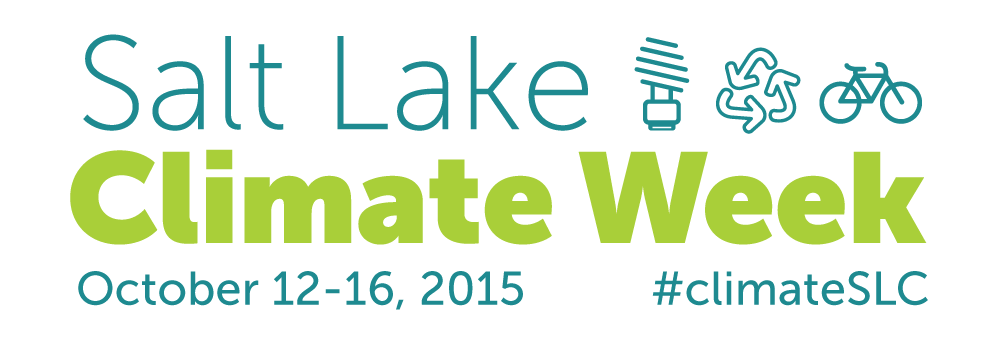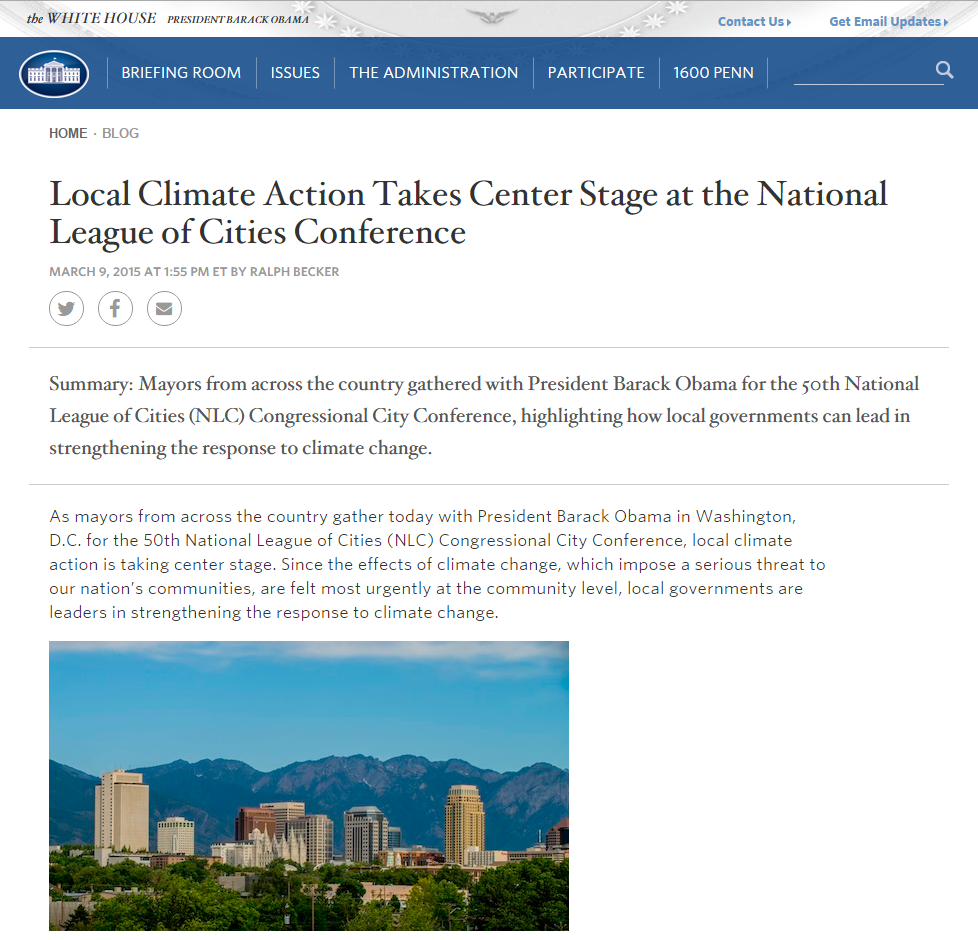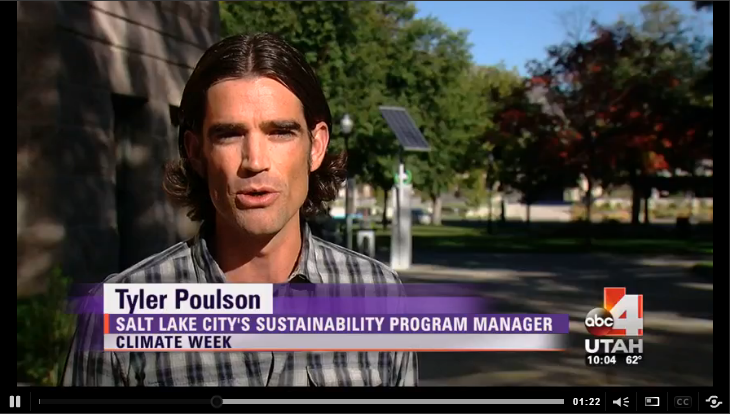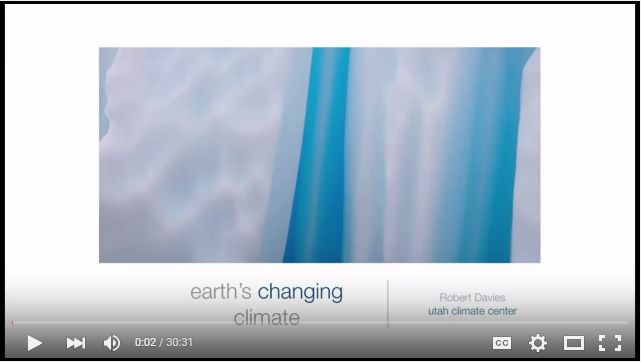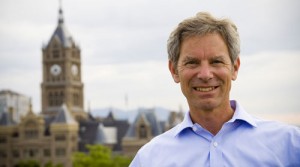
Salt Lake City has been recognized as a Climate Action Champion for showing leadership on climate change. The accomplishments of Salt Lake City in the past seven years demonstrate a commitment and successful track record of innovation and leadership to integrate the reduction of greenhouse gas (GHG) emissions and enhance climate resilience into local and regional planning and decision-making.
Here are some of the City’s climate actions, goals, and key initiatives:
Joint Resolution To Reduce Carbon Footprint. Mayor Ralph Becker and the Salt Lake City Council signed a joint resolution in 2008 committing the City to reduce its municipal carbon footprint 20% below the 2005 level by 2020; 50% below the 2005 level by 2040; and, 80% below the 2005 level by 2050.
Community Greenhouse Gas Inventory. The City completed its first community GHG inventory in 2009, which quantified 4.75 million metric tons of carbon dioxide equivalent (CO2e) emissions – or 26 metric tons per person – and prompted the City’s commitment to eliminate 1.3 million metric tons of CO2e by 2020. The City also has a goal for reduction of GHG emissions in the community by 80% below the 2005 level by 2050.
Clear the Air Challenge. The City created the Clear the Air Challenge to engage citizens in voluntary reductions in vehicle miles traveled, resulting in the elimination of over 9.5 million single-occupant vehicle miles traveled and reducing more than 7.5 million pounds of GHG emissions between 2009 and 2014.
Salt Lake City Sustainable Code Revision. The Salt Lake City Sustainable Code Revision project is a ground-breaking initiative to incorporate sustainability provisions into zoning and subdivision ordinances.
Salt Lake City Energy and Transportation Sustainability Plan. The Salt Lake City Energy and Transportation Sustainability Plan (2011) details strategies for the City to contribute to climate resilience, cleaner air, greater energy security, a green energy economy, and protection of our water supply, wildlife, and other natural resources. Salt Lake City Energy and Transportation Sustainability Plan goals include:
- Decrease total building energy use in the city by 5%, to 35 million MBTUs by 2015
- Transform all City government buildings into net-zero facilities
- Increase renewable energy generation on City facilities to 2.5 megawatt by 2015
- Generation of 10 megawatts of solar energy in the community by 2015
- Reduction of vehicle miles traveled by residents by 6.5% by 2015
Salt Lake City Public Safety Building. The City’s $125 million Public Safety Building is the first public safety building in the nation constructed to achieve Net Zero energy use due to the use of multiple innovative energy efficiencies and solar-photovoltaic (PV) technologies.
Livability in Salt Lake City 2012-2016. Mayor Becker published his agenda, Livability in Salt Lake City 2012-2016, to frame a broad vision of local climate response goals, strategies, and actions that lead to greater resiliency, vitality, accessibility, sustainability, and diversity further distilled in the Sustainable Salt Lake Plan 2015.
Sustainable Salt Lake – Plan 2015. The Sustainable Salt Lake – Plan 2015 (Plan 2015) grounds the City’s broad and ambitious climate response strategy with goals, key metrics, and milestones related to air quality, energy, transportation, water resources, urban forestry, and open space. Sustainable City Dashboard. The Sustainable City Dashboard is an innovative new online tool to track key metrics and milestones associated with the Plan 2015 and promote an increased level of public engagement and feedback on climate response initiatives.
To learn more about Salt Lake City’s climate actions, visit SLCgreen.com!

